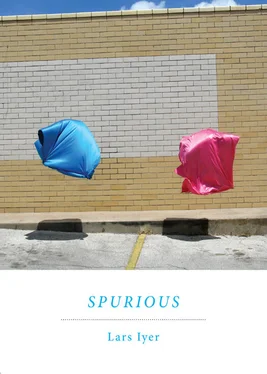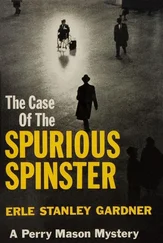We head up into the grounds, the great sweep of lawn running up to the mansion on our right, opening up a great landscape, planned and planted two hundred years ago. — ‘They must have thought they had all the time in the world’, says W. Then, on our left, a beach of pebbles, the sea, and, across the Sound, the distant city, with blue-grey naval ships going to and fro.
‘See, what more do you want than this?’, says W. Later, rising up into the woods, we sit and look out over the water. There’s a ferry, travelling out to Spain. W.: ‘We should go on a trip, one day. We should go to Spain’. And then: ‘We’re not going to go anywhere, are we? We’re men of habit. Simple beings’. And then, ‘Everything’s got to be the same. That’s our strength’.
The last Duke of Edgcumbe, W. tells me, married a barmaid from the pub, and put the whole estate up for sale. The city bought it. It’s a miracle, we agree, as we walk out along the shore to where the path rises up through the woods.
It was here the Dukes and their guests would drive about in their carriages in the twilight, imagining they were in some Gothic romance. There’s even a faux-ruined folly built on the hill, looking very unconvincing in the autumn sun.
A landslide has taken the woods with it; some trees still stand, growing aslant, though most have fallen. The path has been diverted, but W. prefers the old route. It’s slow going — very overgrown — and where the cliff has completely collapsed, we have to scramble across scree.
What would happen if we fell? It’s a long way down. But W. and I never think about our deaths or anything like that. That would be pure melodrama. Besides, if we died, others would come along to replace us. Our position is structural, we’ve always been convinced of that. We’re only signs or syndromes of some great collapse, and our deaths will be no more significant than those of summer flies in empty rooms.
As we look out to sea, a great shadow seems to move under the water. He can see it, says W. — ‘Look: the kraken of your idiocy’. Yes, there it is, moving darkly beneath the water.
W. is growing his hair, he says. — ‘It’s what the kids are doing’. The kids are looking very gentle, we agree. It’s the age of Aquarius. — ‘So why aren’t you growing yours? Go on, grow it!’ This as we mount the Hoe from the town side.
‘The sea makes me happy’, W. says, ‘does it make you happy?’ It does. We stand before the whole panorama, from Mount Batten to Mount Edgcumbe, the far off seabreak with the lighthouse at one end, and, because it’s a very clear day, the farther lighthouse that can be seen standing blue ten miles out against the horizon. And then the various islands, large and small. And the whole sweep of water, shimmeringly blue under the very blue sky: here we are again!
To think it will all end so soon! To think we’re on the edge of the greatest catastrophe! The oceans will boil, the sky will burn away into space. And won’t we be the first to be swept away? Won’t we be the first to go under?
The apocalypse is close, we know that. The apocalypse is coming, of that we are certain …
As we walk towards the lido, W. tells me about the Greek phalanx. The soldiers locked their shields together, he says, to form a great defensive wall. Their bronze-tipped spears would poke out of the front. Together, loyal, they were almost invincible, says W. — ‘Of course you wouldn’t understand any of this’, he says. ‘You’re not loyal. You know nothing of loyalty. You would break the phalanx’, says W. ‘You’d be the first to break it’.
W.’s great fantasy, and he must admit, he says, that it is a fantasy, is of forming a community of writers and thinkers, linked by mutual friendship. Together we’ll be capable of more than we might do on our own. That’s what he’s always hoped, says W. It’s what he’s always dreamt of.
Above all, we have to avoid the traps of careerism, says W. Loyalty and trust, that’s what matters: we have to be prepared to die for one another. — ‘Literally that: to die for one another’ , W. says. ‘It’s all about the phalanx’, W. says. ‘The phalanx you would immediately betray’.
That’s the ultimate paradox, W. observes: that one with such faith in friendship should end up with such a friend. Would I die for him? No. Would I immediately betray him, given any opportunity? Yes. In fact, I’ve already done so several times.
Where did it all go wrong? At what stage did he stray from the path? These are the questions he asks himself constantly, W. says, and they always come back to the same answer: me. It’s my fault, W. says. Everything went wrong when he met me.
‘When did you know you were a failure?’, W. repeatedly asks me. ‘When was it you knew you’d never have a single thought of your own — not one’?
He asks me these questions, W. says, because he’s constantly posing them to himself. Why is he still so amazed at his lack of ability? He’s not sure. But he is amazed, and he will never get over it, and this will have been his life, this amazement and his inability to get over it.
What amazes him still further, says W., is that I am almost entirely lacking in the same amazement. I’m like the idiot double of an idiot, W. says, being of the same intelligence (or nearly the same intelligence; I am a few IQ points behind him), of the same degree of laziness (or nearly the same laziness; I am more indolent than he is), but entirely lacking an awareness of what I so signally lack.
Every year I tell W. about my latest plans to escape. It amuses W., who knows I will never escape and nor will he. Why do I think I can escape? Why do I have that temerity? ‘You’re not getting out’, he says, ‘you’re stuck like everybody else’. Two years ago I was going to learn Sanskrit, he reminds me. I was going to become a great scholar of Hinduism . And what was it last year? It was music, wasn’t it? I was going to become a great scholar of music .
But what did I know about Sanskrit, really? And what did I know about music? — ‘Nothing at all’, says W., ‘about either subject’. What work did I do to learn something about Sanskrit and music? — ‘None at all!’, says W. ‘Not one bit!’
There’s no getting out: when am I going to understand that? I’m stuck forever: when am I going to resign myself to the cage of my stupidity?
W. has been lost in bureaucracy, he says on the phone. He tells me about his recent illness, the most ill he’s ever been. — ‘I don’t know how Kafka wrote when he was ill’, says W. When W. was ill, he was farther from writing The Trial than he’s ever been, he says.
In W.’s mind, he says, ill health has always been linked to genius. Maybe it’s the key to great thoughts, he says, reminding me of the authors we admire who passed close to death. But then, of course, W. has only got a cold, not even flu, not really, let alone tuberculosis or liver failure or anything like that.
Still, he’s disappointed that not one thought has come to him, not one, especially as it would pertain to the great crises that have gripped the world. He always thinks one might. It worked for Kafka, didn’t it? And what about Blanchot? But W.’s illnesses lead nowhere, he says. They always disappoint him.
We’re off on another trip. — ‘How many shirts are you taking?’, asks W. on the phone. Four, I tell him. Four! He says he’ll only take two. He doesn’t sweat as much as me, he says. — ‘You sweat a lot, don’t you, fat boy? How many pairs of pants are you taking?’ Four, I tell him. — ‘Four pairs of pants’, W. muses. He’ll take four as well, he decides, and four pairs of socks. — ‘How many pairs of trousers will you take?’, asks W. One, I tell him. — ‘One!’, W. says, ‘after all your accidents? Have you learnt nothing?’ W.’s going to take two pairs of trousers, he says, just in case.
Читать дальше












